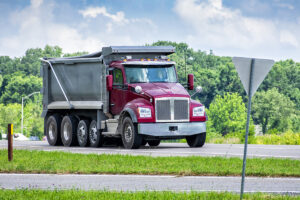
Vehicle suppression systems are a must-have for any business that requires large or valuable vehicles for their work.
In the world of fire safety, vehicle suppression systems play a crucial role in preventing catastrophic damage and potential loss of life. Whether in industrial settings, commercial fleets, or even personal vehicles, these systems act as an essential line of defense against fires that can quickly escalate out of control. Understanding the different types of vehicle suppression systems and their maintenance practices is paramount for ensuring their effectiveness.
Liquid Vehicle Suppression Systems
Liquid vehicle suppression systems are among the most common types, utilizing water and other additives to suppress fires effectively. These systems typically consist of a network of pipes installed within the vehicle’s engine compartment, cargo area, or other critical areas prone to fire risk. Upon detecting a fire, the system releases the suppression agent, quickly extinguishing the flames.
Advantages of liquid suppression systems include their rapid response time and effectiveness against various types of fires. However, they require careful maintenance to ensure proper functionality, including regular inspections of pipes, nozzles, and detection mechanisms.
Dry Vehicle Suppression Systems
Dry vehicle suppression systems employ a dry chemical agent, such as powder or foam, to smother fires by interrupting the chemical reaction necessary for combustion. These systems are commonly found in environments where liquids like water could pose additional risks, such as electrical fires.
While dry suppression systems offer versatility and effectiveness, they necessitate thorough inspections to prevent clogging and ensure the proper functioning of discharge nozzles and valves. Additionally, regular testing is crucial to verify the integrity of the system’s components.
Dual Vehicle Suppression Systems
Dual vehicle suppression systems combine elements of both liquid and dry suppression technologies to provide comprehensive fire protection coverage. Integrating multiple suppression agents offers enhanced flexibility and efficacy in combating various types of fires, including those involving flammable liquids and electrical hazards.
Maintenance of dual suppression systems involves regular checks of both liquid and dry components and coordination between different agents to ensure seamless operation in the event of a fire emergency.
Small Vehicle Suppression Systems
Small vehicle suppression systems are specifically designed for compact vehicles, such as golf carts, utility vehicles, and other specialized transportation equipment. These systems are often portable and lightweight, making them ideal for installations where space is limited or mobility is required.
Despite their smaller size, maintenance of these systems remains critical, including routine inspections of cylinders, hoses, and activation mechanisms. Proper training for personnel operating and maintaining small vehicle suppression systems is also essential to maximize their effectiveness during emergencies.
Basic Inspection and Maintenance Practices
Regardless of the type of vehicle suppression system in use, adhering to basic inspection and maintenance practices is paramount to ensuring optimal performance and reliability. Some key practices include:
- Regular Inspections: Conduct routine visual inspections of all system components, including pipes, nozzles, cylinders, and detection devices, to identify signs of wear, corrosion, or damage.
- Functional Testing: Test the functionality of suppression systems periodically to verify proper operation and response time. This may involve manual activation tests or simulated fire scenarios under controlled conditions.
- Cleanliness: Keep all system components clean and free from debris to prevent obstructions that could impede the flow of suppression agents during an emergency.
- Training and Education: Provide comprehensive training for personnel responsible for operating and maintaining vehicle suppression systems, including proper procedures for inspection, testing, and emergency response.
Fire Protection Services from Fireline
Whether you need smoke detectors, fire extinguishers, or an automatic sprinkler system installed at your commercial property, Fireline has you covered. We have been protecting
people and property from fire damage since 1947—and our experience shows in our excellent work! We are known for our superb customer service, our expertise, and our reliability. For more information on how we can help your residential or commercial property, visit us online or give us a call at (800) 553-3405. We are in Baltimore, MD, with a second office in Leesburg, VA. For more fire safety tips, be sure to follow us on Facebook, Twitter, and LinkedIn.
